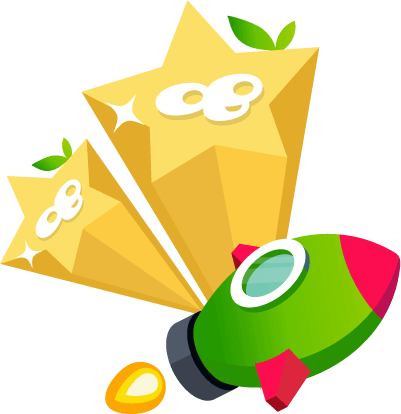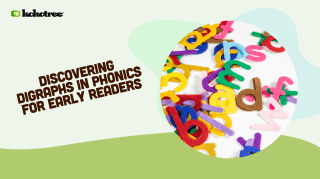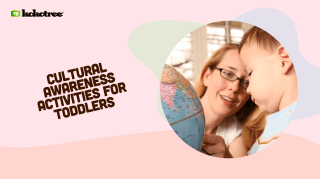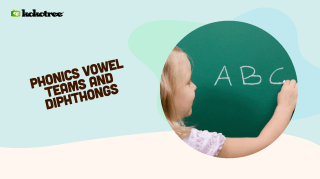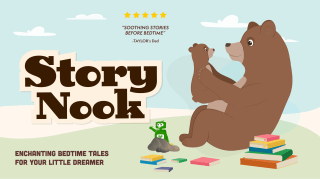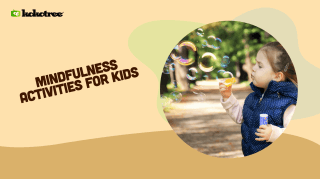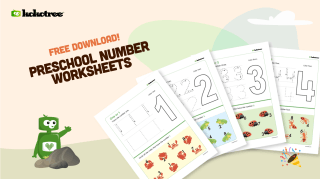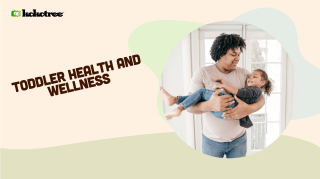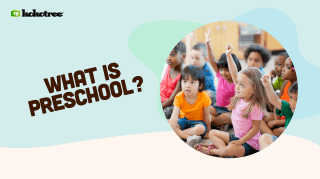As a parent of a toddler, you probably know that those early years are essential for language development. If you’re seeking new ways to help your little one expand their vocabulary, then you’ve come to the right place! In this blog post, we’ll share some fun, engaging activities and games that not only make vocabulary building enjoyable but also enhance your child’s language skills. Drawing from evidence-based advice, our tips are designed to be conversational, friendly, and easy-to-follow. So, let’s dive in and discover the exciting world of words with your toddler!
Vocabulary-Building Fun for Toddlers
Vocabulary-building fun for toddlers involves engaging activities and games that encourage children to learn new words and improve their language skills. By incorporating enjoyable, age-appropriate tasks into everyday routines, parents can create a positive and interactive learning environment, helping their little ones grow their vocabulary and develop strong communication abilities.
1. Explore the World Together
One of the best ways to encourage vocabulary-building in toddlers is to help them explore their environment. Go for walks, visit parks, or simply observe items around the house together. As you introduce new surroundings, use this opportunity to teach them new words and phrases to describe what they see, hear, and feel.
2. Engage in Conversations with Your Toddler
Establishing a habit of regular conversations with your little one can foster early childhood education and enhance their language development. Respond to their babbling, ask them questions, and give them the opportunity to practice new words. By chatting with your toddler, you’re establishing a solid foundation for meaningful exchanges throughout their life.
Tips for Effective Conversations:
- Get down to their level – squat or sit so you can maintain eye contact with your toddler.
- Be patient – give your child time to respond to your questions or comments.
- Be encouraging – even if they don’t get the words right, praise their efforts to communicate.
3. Sing Songs and Nursery Rhymes
Music and melody can work wonders in molding vocabulary skills in young minds. Teach your toddler popular nursery rhymes or create your own fun songs featuring a range of new words. Singing together strengthens language skills and creates happy memories for both of you.
4. Emphasize Vocabulary During Routine Activities
Everyday routines, such as bathing or grocery shopping, are perfect for incorporating educational opportunities. Use descriptive words during these activities and encourage your child to repeat them. By consistently engaging with new vocabulary, they will quickly learn and remember new words.
Examples:
- Shopping: “We need apples. Can you find the red apples?”
- Bathing: “Let’s wash your hair. We’re using a soft sponge.”
5. Promote Reading and Storytelling
Reading books or telling stories can be an invaluable part of early childhood education. Choose age-appropriate books with bright pictures, repetitive phrases, and large print. Encourage your child to participate in the story as you pause to give them a chance to complete a sentence or add a new word of their choosing.
Selecting the Right Books:
- Choose books about topics your toddler enjoys or is interested in.
- Prioritize books that use a variety of interesting or new words to describe things.
- Opt for books with rhymes or alliteration to increase your child’s language skills.
6. Encourage Pretend Play
Pretend play is great for language development as it involves using their imagination and creativity. Encourage activities such as playing with dolls, building a city with blocks, or pretending to be their favorite animals. Use these imaginative scenarios to introduce new vocabulary and model correct language usage for your child.
7. Make Use of Flashcards
Flashcards with pictures and words can be a useful tool to introduce new words to your toddler. By holding up the card and verbalizing the word it represents, you can help strengthen the connection between the image and the corresponding vocabulary. With consistency, this can develop into a fun, interactive learning activity.
Personalizing Flashcards:
- Use images of items, family members, or experiences from your child’s life to make the experience more meaningful.
- Incorporate your child’s favorite colors, characters, or shapes into your flashcards for added engagement.
8. Consider a Learning App for Toddlers
With the right learning app for toddlers, vocabulary-building can be accessible and enjoyable even on-the-go. These apps typically feature colorful visuals and interactive games that introduce new words in a fun and entertaining manner. However, make sure to always supervise your child’s screen time and use these learning apps as a supplement to real-life interactions.
Choosing the Right Learning App for Your Child:
- Search for app reviews and testimonials from reputable sources before deciding on one.
- Try a free trial, if available, to assess the app’s user-friendliness and effectiveness before purchasing.
- Explore the app together with your child to ensure it’s an engaging and suitable choice for their age.
9. Play Word Games
Word games such as “I Spy” and “Simon Says” are great for reinforcing new vocabulary and encouraging active listening skills. Incorporate these games into daily playtime and gradually introduce new words to expand your child’s vocabulary.
Simple Word Games to Try:
- “I Spy”: Describe an object in the room and ask your child to find and name the object.
- Simon Says“: Use this classic game to practice action words like jump, clap, or spin.
- “Animal Sounds”: Ask your toddler to imitate an animal and help them learn the corresponding sound and name.
By practicing these vocabulary-building activities and games, you can support your child’s language development in an enriching and engaging manner. It’s essential to listen, encourage, and consistently expose them to new words, turning these fun activities into valuable learning experiences. Remember, the key to successful early childhood education is to make learning enjoyable and meaningful for your toddler.
10. Layered Learning: Combining Vocabulary Development with Other Skills
Enhancing toddler vocabulary can happen side by side with the development of other crucial skills. Combining language learning with motor skills, visual-spatial skills, and social-emotional comprehension not only enriches their experiences but also creates meaningful connections within the context of daily life. Providing multi-layered opportunities for exploration ensures a well-rounded approach to toddler education.
Activities for Layered Learning:
- Sorting: Encourage your child to sort objects while naming them. This activity fosters cognitive organization and categorization skills alongside vocabulary development.
- Building: Build a tower with blocks or create objects using different materials. Involve your toddler in a conversation about the shapes, colors, and sizes of the items used, supporting both vocabulary and visual-spatial skills.
- Art projects: Engage your child in simple art projects like drawing, painting, or collage-making. Describe the materials, tools, and colors they are using, weaving in new vocabulary to boost language development and creativity.
- Puzzles: Work on age-appropriate puzzles with your toddler. Talk about the images, shapes, and colors as they fit the pieces together, nurturing cognitive flexibility and vocabulary growth.
11. Language Modeling: Be a Role Model for Your Toddler
As the primary source of language exposure for your toddler, you play a crucial role in their language development. Make a conscious effort to use a variety of words, diversify your vocabulary and ensure you’re always reinforcing positive language behaviors. Engaging in continuous language modeling will promote a strong foundation for your child’s speech and understanding of language mechanics.
Tips for Effective Language Modeling:
- Speak clearly and naturally while interacting with your toddler.
- Avoid speaking too fast or using slang; enunciate words properly.
- Feel free to use a rich vocabulary – they may not understand immediately, but exposure is invaluable.
- Rephrase or provide explanations when possible, so they understand different ways to express ideas.
12. Create a Language-Rich Environment at Home
Your toddler’s environment plays a significant role in shaping their language skills. By creating a language-rich environment at home, you ensure continuous opportunities for your child to acquire new vocabulary and understand how words work in various contexts.
Setting Up a Language-Rich Home:
- Surround your child with a variety of books, games, and materials that encourage language development.
- Label items in their playroom or bedroom, encouraging familiarity with written words.
- Use a wide variety of adjectives and descriptive language when discussing objects, events, or emotions.
- Display family photos or themed collections, sparking conversations and memories.
By integrating vocabulary-building opportunities into everyday activities, engaging in interactive learning games, and creating an enriched environment, you are nurturing a solid foundation for your toddler’s language development. Embrace your vital role in your child’s growth and support them as they navigate the fascinating world of words. Remember, a well-rounded and enjoyable approach to toddler education makes all the difference!
Frequently Asked Questions
We understand that as a parent, you might have some questions about how to support and enhance your toddler’s vocabulary development. We have compiled a list of frequently asked questions along with their respective answers to provide guidance and support as you venture into the world of vocabulary-building with your little one.
1. When should I start teaching new words to my toddler?
Language development begins at birth, with babies learning to recognize and respond to familiar voices. As your child grows, they’ll naturally start learning words and phrases from their surroundings. You can begin teaching new words to your toddler once they show signs of understanding simple instructions or when they start to form words themselves, usually around 12-18 months of age.
2. How many words should my toddler know?
Toddlers develop at their own pace, and the number of words they learn might vary. However, by the age of 2, most children typically know around 50-100 words. This number grows exponentially as they approach the age of 3, with vocabulary increasing to several hundred words or more.
3. What if my toddler doesn’t pronounce words correctly?
In the early stages of language development, it’s common for toddlers to mispronounce words. This is part of the learning process. Instead of correcting them, model the correct pronunciation while maintaining a supportive and positive tone. With exposure and practice, their pronunciation will improve over time.
4. How can I keep track of my child’s vocabulary progress?
You can create a casual “word diary” to keep track of the new words your child learns. Jot down each new word as they acquire it, along with the date when they first begin using it. Review the diary periodically to celebrate progress and identify areas for further development.
5. My toddler doesn’t seem interested in learning new words. What do I do?
Engaging in fun activities and games that pique their interest can help. Choose activities that match their current interests, and gradually introduce new words within those contexts. Remember that children have a natural curiosity for learning, so be patient and find creative ways to hold their attention.
6. Do children learn languages faster in a bilingual environment?
Research suggests that exposing children to more than one language early in life can enhance cognitive development, leading to increased language learning abilities as they grow. Bilingual children may initially have a smaller vocabulary in each language, but they catch up fairly quickly as they develop.
7. How can I support my child’s language development if I’m not a native speaker of a language?
Expose your child to native speakers through language classes, playdates, or cultural events. Utilize books, music, and other resources available in the language you would like your child to learn. Remember, your support and encouragement are vital, even if you’re not a native speaker yourself.
8. Can TV shows or media help in vocabulary building for toddlers?
While some educational TV shows and media can introduce new words, they should not replace real-life interactions and experiences. Limit screen time as per the American Academy of Pediatrics’ recommendations and always supervise and engage with your child during their exposure to media.
9. Do boys and girls have different vocabulary development patterns?
On average, research indicates that girls may develop language skills slightly faster than boys. However, individual differences in development depend on various factors such as environment, exposure, and genetics. Encourage both boys and girls to learn language skills through fun, interactive activities.
10. When should I be concerned about my child’s language development?
Children develop language skills at their own pace, and some may take longer than others. If you have concerns about your child’s language development, consult with a pediatrician, speech and language pathologist, or early childhood education specialist to discuss evaluations or interventions that may be necessary.
11. How can I incorporate vocabulary building into our daily routine?
From mealtime conversations to bedtime stories, identify moments in the day where you can naturally introduce new words or encourage language practice. Be mindful of these opportunities and integrate vocabulary-building activities and discussions into everyday interactions.
12. What should I do if my toddler mixes up languages while learning?
Mixing languages is natural during bilingual language development. If your toddler mixes languages, gently model the appropriate language usage and provide context for them to understand. Over time, as their mastery of both languages improves, they will learn to differentiate and use each language correctly.
13. What if my child is shy or reluctant to speak?
Every child is different, and some may be shy or more reluctant to speak. Encourage their progress by providing a supportive environment, celebrating their efforts, and focusing on activities that interest them. With time, patience, and exposure to social situations, your child’s confidence in speaking will likely improve.
